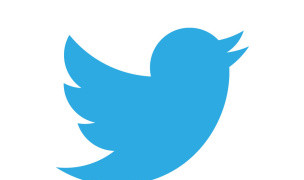 15 Términos
15 TérminosInicio > Answers > Isethicstrainingneededfororganizations twa1359350768
Is ethics training needed for organizations?
As much as organizations need profits; there is an overwhelming need for pursuing wealth and profits through ethical means. Business is strongly linked to morality in most cultures. Doesn’t this sound a little oxymoronic in this age of competition? On the one hand, we are told that ethics should be the cornerstone of business. On the other; we have the famous saying, to the effect that competition brings the best out of products and the worst in humans.
How is ethics defined?
This makes the pursuit of ethics as a means for profit a kind of asynchronous matter. On top of it all, the biggest problem relating to ethics is that it is not defined in a single, universally acceptable manner. Being a subjective term; it means one thing to one organization and another to another one. Unethical practice is not the same as an illegal one, because an illegal act is an act that is forbidden by law, which is usually written and is unambiguous. An unethical act is one that is perceived, and not exactly proven to be a wrongful act.
So, where does this lead us? Aren’t we shooting in the dark? In the absence of clearly definable and actionable classifications, what is ethics to one organization is not so to another. Yet, there are ways by which an organization can be found to practice ethical practices.
Define acst that are unethical
First, there are a few acts that are clearly unethical, whether the organization thinks so or not. Who would agree that fudging accounts is a moral thing? Isn’t such an act an immoral one? It is possible for many organizations to manipulate the books to such an extent that it could show thoroughly legally acceptable accounts on paper, while having an altered set of records to show. An organization guided by ethics should certainly desist from actions such as this.
There are several other acts that can also be classified as unethical. Exploiting employees by making them work beyond their defined work hours without adequately compensating for it is another unethical act.
Practice it at all levels…
It is thus the organization’s crookedness that determines its lack of ethics. It is when its sense of ethics percolates down the organizational hierarchy that one can say it is an ethical one. The top leadership is responsible for ensuring that all members in the organization, right from the most senior to the smallest, practices a designated set of ethical practices that the organization can be shown to be ethical.
…and with everyone concerned
In the same way, it has to ensure that its set of ethics is enforced in its interactions and dealings with its business partners and customers. This is when an organization can be said to be ethical. Agreed, we are talking about a subjective term; but that does not take away from an organization’s capability for being ethical.
It is funny that people have to use the rest room to access FB! If only they were given a little space at work, this need wouldn’t have arisen. This goes on to show that employees will invent ways to access their personal email accounts or FB if they want to, even if they have micro-managers breathing down their necks. My view is that so long as they are delivering high quality work, why make them go all the way to the rest room? Why not let them access FB at their desk?
- Industria/ámbito: Recursos humanos
- Categoría:
- Created: 23:26, 27 January 2013
Creador
Glosarios destacados
rufaro9102
0
Términos
41
Blosarios
4
Seguidores
The Kardashians
Categoría: Entretenimiento 2  4 Términos
4 Términos
 4 Términos
4 Términos
Zhangjie
0
Términos
7
Blosarios
5
Seguidores
Halls and Gates of the Forbiden City
Categoría: Viajes 1  1 Términos
1 Términos
 1 Términos
1 Términos




